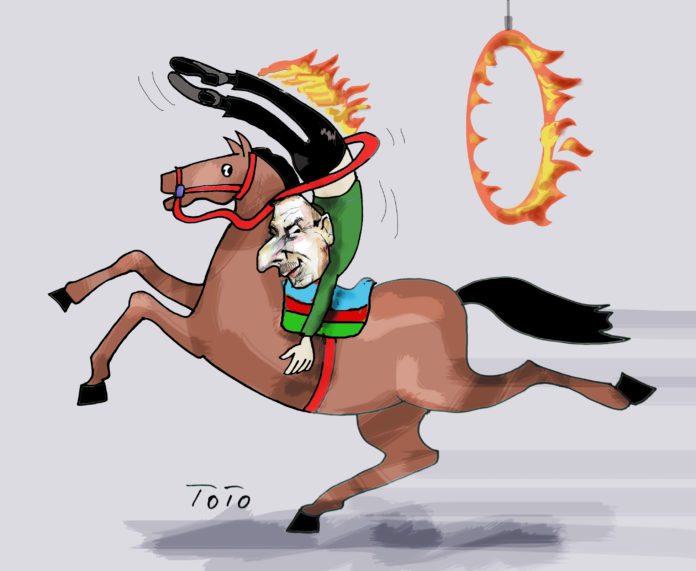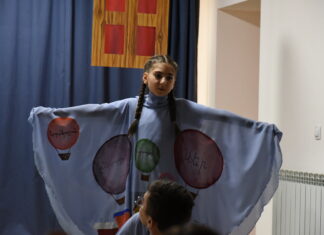The Armenian government is caught between a rock and a hard place; it has been negotiating on two fronts with Turkey and Azerbaijan, and most probably, giving in on major issues in hope of achieving an elusive peace, yet it has to put on a brave face for its citizens and proclaim that the negotiations will be yielding positive results.
At issue are the settlement of the Karabakh status and the creation of the Zangezur Corridor through Syunik, Armenia. For all practical purposes, it looks like Turkey and Azerbaijan will be receiving what they have sought; as one Turkish newspaper heralded, “the gate to Great Turan is opening,” referring to the Zangezur Corridor, while Armen Grigoryan, the secretary of the National Security Council, has been reassuring the public that Yerevan is not after territorial claims but only after the security and rights of the people of Karabakh.
Finally, Grigoryan has conceded that negotiations are for peace, and are separate from the issue of the Karabakh conflict. Thus, while the government has been crafting the appropriate semantics to couch the inconvenient truth from the public, the opposition is denouncing the regime of Prime Minister Nikol Pashinyan for selling out the country to the Turks and Azerbaijanis.
As Armenia grudgingly swallows the compromises, Azerbaijan is becoming more belligerent, with the firm belief that this is the best time to push Armenia to the breaking point. Indeed, Azerbaijan’s President Ilham Aliyev believes that the stars can never align again to offer another such chance, which was handed to him by the combination of the might of the Turkish and Israeli drones, Pakistani pilots and Syrian Jihadists. Time is not a friend of Azerbaijan, as the window is closing for those who will be seeking settlement of their problems through violence in the region.
Azerbaijani forces on a daily basis have made incursions into Armenia and Karabakh, and publicly blame the Armenian side. In fact, Zakir Hasanov, Azerbaijan’s minister of defense, announced a few days ago that his country’s armed forces stand in full readiness to counter any provocation from the Armenian side.
Azerbaijan is rebuilding its armed forces at a rapid pace. During the recent war, despite defections and security breaches, Armenia withstood the aggression for 44 days and damaged Azerbaijan’s forces considerably. But Baku, this time around, is replenishing its arsenal with even more modern weaponry. Fuad Shahbazov, writing in Eurasianet.org, states, “The modernization of Azerbaijan’s military is part of a broader post-2020 military expansion, including a significant increase in the military budget. Aliyev has cited the risk of Armenian revanchism as the reason. But a more likely motivation is the overall declining security environment in Azerbaijan’s neighborhood. The full-scale conventional war now underway in Ukraine, and the relatively successful defense mounted by the NATO-trained Ukrainian armed forces has only strengthened the case for military reform and moving beyond the Soviet legacy.”








